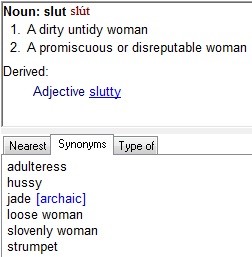Indians protest s*xual violence with Slut Walk in New Delhi
Hundreds of protesters took to the streets of New Delhi for India's first "Slut Walk" on Sunday, to protest at an alarming rise in s*xual assault cases and the growing sense of insecurity among women.
"Slut Walks", which have become a global phenomenon to protest against s*xual violence, see women march dressed in skimpy clothing to challenge the mindset that victims of s*xual assault should be blamed for the crimes against them.
But most of the women participating in the protest in New Delhi chose to wear loose T-shirts and trousers, as they felt the cause was more important than the clothes.
"It is time for Indian women to speak out and fight for their own security. Indian women are not sluts and men have no right to treat us like one," 22-year-old student Ashima Awal said.
A 2010 survey found that 85 per cent of women in Delhi feared being harassed, and many of those at Sunday's march said being groped or molested was an almost daily occurrence.
"Even if we are covered from head to toe, we get molested. Men just need an opportunity to harass women," said Raksha Gupta, a housewife who took part in the protest along with her husband and her in-laws.
"Groping and staring at women in public spaces is a sport in the national capital, several men can win gold medals here," said Uma Jaysingh, a student who uses public transport to travel to college.
"I take a deep breathe when I get in the bus and always keep a pepper spray in my bag," said Jaysingh, who believes fighting back against s*xual assault is the only way to control it.
"Indian women have to be street smart and they cannot choose to be delicate darling anymore."
New Delhi now tops the chart of the most unsafe cities in India, with 489 reported rape cases in 2010, up from 459 in 2009, according to police statistics
.
In the 2010 survey by the Delhi government, the United Nations and women's rights group Jagori (Wake Up Women), 45 per cent of women said they avoided stepping out alone after dark and 65 per cent feared taking public transport.
A number of men joined their wives, girlfriends, daughters and nieces on the protest march.
"I don't want my daughter to ever deal with s*xual harassment. Men will have tell other men to stop this crime," said Ajay Mathur, a father of two teenage daughters.
"I have trained my daughters to shout if someone makes a lewd remark," said Mathur, who said he felt that most Indian women were often too shy or embarrassed to report incidents of s*xual crime.
India's rapid economic growth has thrown open new job opportunities for women, while attitudes to premarital relationships and s*x have also transformed in middle class areas of major cities.
But women seen as modern and independent complain they are viewed by men as "easy".
"If a woman is standing alone waiting for a cab or a bus at night, men will stop next to her and check her out," said Achla Sachdev, 26, who works for a bank.
"I hate this feeling of being unsafe and insecure in my own city."
The Slut Walk has faced opposition in India, with many viewing the title as provocative and distracting attention from a serious issue – prompting the organisers to soften it by adding the Hindi term for "shamelessness" to the name.
Its full title is Slut Walk or Besharmi Morcha (shameless front).
Umang Sabharwal, the 19-year-old journalism student who organised Sunday's march, said the focus should be on the issue, not the name of the protest.
"People should oppose crime against women. There is no need to oppose the name, Slut Walk," she said.
Jagori worker Prabhleen, who uses only one name, told AFP last week that women in India do not feel free to do what they want
.
"You are constantly reminded that being a woman you need to have a checklist with you, be careful where you are going, when you are going and whether you are wearing the right dress or not," she said.













